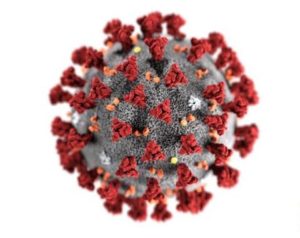WASHINGTON, DC – October 14, 2022 – In a recent interview with CBS on October 14th, Dr. Anthony Fauci, the White House’s top medical advisor, says that there are 2 more significant COVID-19 variants circulating in the United States. As of October 15th, the new variants, called BQ.1 and BQ.1.1, account for more than 10% of all new COVID cases in the U.S. according to data from the CDC. This is double the percent of new infections from the previous week. The BQ.1.1 variant is characterized by its ability to be resistant to treatment with many of the commonly used monoclonal antibodies, one of the few effective treatments for symptomatic high-risk COVID-19 patients who have mild to moderate infection. These new variants are related to the Omicron strain, so it is likely that the updated COVID-19 booster will offer some cross protection.
Many of the newer variants are a result of mutations that can prevent the ability of antibodies to bind to the COVID virus. They have occurred at a similar location on the virus’s spike protein where the virus-blocking antibodies can dock and neutralize the virus’ ability to damage cells. The more mutations in the new strain, the more effective for the ability for the virus to survive. The end result is that the new viral strain can avoid the body’s primary line of immune defense and cause breakthrough infections, in spite of the body developing COVID-related antibodies after prior immunization or illness. Nevertheless, it is generally felt that immunization or prior COVID infection conveys a higher protection against severe illness and death.
The BA.5 and BA.4 variants still represent the most dominant variants in the U.S., at about 68% and 12% respectively. Fewer people are infected with the BA.5 strain as the BQ.1 and BQ.1.1 strain become more widespread. The number of COVID hospitalizations and new cases has continued to decline over the past month in spite of the emergence of these new variants.
Epidemiologists and public health experts are concerned about a possible fall surge of COVID cases in the U.S. that occurs with many other viral respiratory diseases like the flu. Cases and hospitalizations have already begun to increase in Western Europe and in New England last month. With colder weather outside, more people are spending more time indoors and children and adolescents are in school. Indoor environments have been linked to a higher risk of spread of respiratory illnesses.
Dr Fauci told CBS, “As much as you want to feel good about the fact that cases are down, hospitalizations are down, we don’t want to declare victory too prematurely, and that’s the reason why we’ve got to keep our eye out on these emerging variants.” He encourages all eligible people to get an updated COVID-19 booster.
Listen to the full report below:
Contact: Dr. Dick Needleman, Health reporter, 103.3 AshevilleFM, [email protected]
More Posts for Show: Asheville FM News Hour
